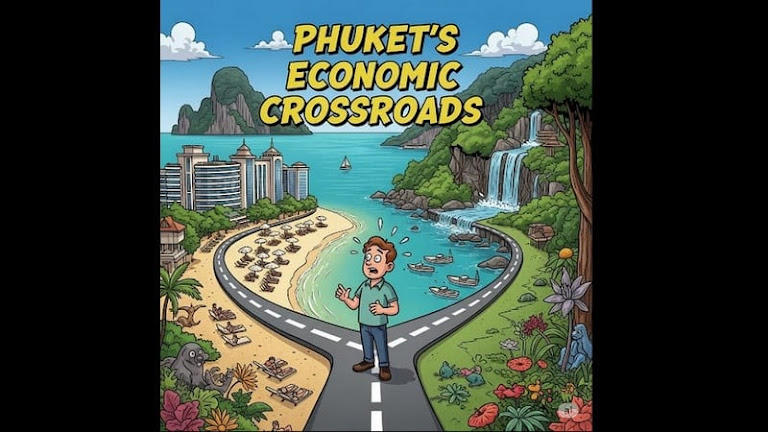Phuket Seeks Foreign Investment, Vows to Protect Sovereignty
Government efforts to curb nominee structures and introduce reforms like 99-year leases aim to secure foreign investment confidence.

Phuket, the jewel of Thailand’s tourism sector, is currently navigating a complex period of readjustment. The island’s economy, a potent engine fueled by foreign investment and the draw of paradise, faces headwinds from a government crackdown on nominee structures—arrangements that have, in the past, allowed foreigners to skirt ownership restrictions. As explored in this final piece of a series examining Thailand’s changing investment landscape, the Thai government is now proposing significant reforms, a signal of both its intent to maintain the flow of foreign capital and its determination to enforce existing laws. The question is whether these proposed reforms are enough to offset the chilling effect of heightened scrutiny and create a stable, transparent environment that fosters long-term confidence.
The core challenge is one of balancing two often-conflicting priorities: national sovereignty and economic growth. Thailand, like many nations, is protective of its land and resources. Restricting foreign ownership, at least on paper, has been seen as a way to safeguard these assets for Thai citizens. But this has, in the past, led to the creation of nominee structures, legal workarounds where Thai nationals hold property or business licenses on behalf of foreigners. The government’s crackdown aims to dismantle these arrangements, rooting out illicit practices. But in doing so, it risks unsettling legitimate investors who may have relied on these structures or who may be wary of increased legal uncertainty.
The government’s proposed reforms—including 99-year land leases and increasing foreign condo ownership to 75%—are designed to provide a legal pathway for foreign investment. The intent is clear: offer secure alternatives to the existing grey areas. But the success of these initiatives is far from guaranteed. It hinges not only on their enactment, but also on consistent and transparent enforcement. Public trust in the impartiality and efficiency of the Thai legal system will be paramount. The allure of Thailand, and particularly Phuket, remains strong: witness the continued growth in property transfers despite the nationwide decline. But sentiment alone isn’t enough to guarantee a stable economic future.
Consider the challenges:
- Implementation Risk: Even with new laws on the books, their practical application matters most. Will there be clear, consistent guidelines that give investors certainty? Or will the implementation process be bogged down in red tape and bureaucratic delays?
- Investor Perception: The crackdown has already created a sense of caution. Can the proposed reforms adequately restore confidence and signal a genuine commitment to fair and transparent treatment of foreign investors?
- Competition: Other countries in the region are actively courting foreign investment. If Thailand is perceived as being too difficult or unpredictable, investors may simply choose to go elsewhere.
Thailand is striving to strike a delicate balance: protecting its national economic interests and sovereignty while continuing to attract vital foreign investment and talent.
The introduction of the Destination Thailand Visa (DTV) is another piece of this complex puzzle. This five-year, multiple-entry visa targets digital nomads and remote workers, aiming to attract a younger, skilled demographic. The hope is that these individuals will contribute to the Thai economy and address challenges like a declining working-age population. While promising, the DTV’s success will depend on its accessibility and the overall attractiveness of Thailand as a place to live and work. The requirements, while easier than the LTR visa, still represent a barrier for some. Furthermore, its reliance on the tourism sector should not overlook the need for other sectors to grow.
Moreover, Phuket faces an oversupply of housing and condominium units, indicating that supply may soon outpace demand. This situation, combined with legal uncertainties, could lead to a looming correction in the property market, potentially resulting in price depression and reduced rental returns. As this analysis from The Phuket News details, the island’s economic fate hangs in the balance, contingent on careful navigation of these intertwined challenges.









